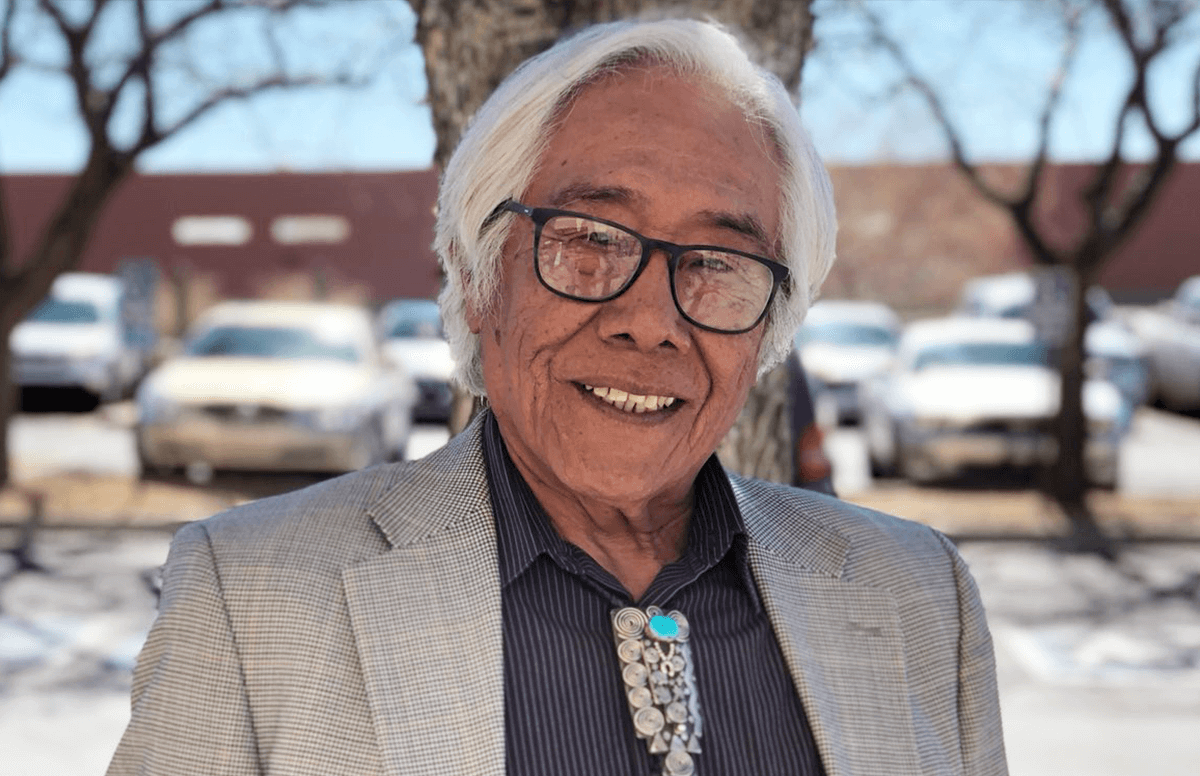
- Details
- By NICOA
At no other time in recent history have tribal leaders across Native America been challenged in ensuring the health and safety of Indian people. That challenge has been immense and that weariness has also extended to those who care for our culture and language keepers, our elders, and their families.
Title VI of the Older Americans Act, legislation drafted and supported by the National Indian Council on Aging (NICOA) in 1978, established nutrition and supportive services for American Indians, Alaska Natives and Native Hawaiians. More than 250 tribes and tribal organizations use the funding for elder centers, home-delivered meals, information, referrals, transportation and personal care. Title VI was later expanded to include caregiver support services to help families caring for relatives with illness or disabilities and grandparents caring for grandchildren. The program, depending on the tribal needs, offers information, individual counseling, supports groups and training, and respite care or short-term care for a loved one to relieve the primary caregiver. This can include adult day care, home health care, or care in a facility. These programs were created to keep families together, provide culturally relevant services and reduce the costs of medical or institutional care.
Though many tribes have created program support for elders and their families, more can be done to aid caregivers and their families. In a focus group comprised of caregivers published by the Diverse Elders Coalition (DEC) in consultation with NICOA, more than half of Native American caregivers reported that they were paying out of pocket expenses and had some or a great deal of difficulty with coordinating or arranging for care services from doctors, nurses and social workers. About 45% of the responding caregivers, a majority who were women, stated they were the only person providing care, with some of them providing care at nearly 20 hours per week.
Researchers also found that caregivers of elders in Indian Country had significant declines in physical and mental health, such as chronic stress and pain, depression, digestive problems, high cholesterol, and fatigue due to the lack of support services. Some caregivers also appeared to be on the verge of burnout and were nearing an inability to effectively continue to care for someone. This was exacerbated during the height of the COVID-19 pandemic that continues to linger in our tribal communities.
NICOA, which was established by the National Tribal Chairman’s Association in 1976 with a mission to advocate for improved comprehensive health, social services and economic wellbeing for elders, respectfully engages tribal leaders as decision-makers to consider creating or strengthening supportive programs and compassionate workplace policies to further aid caregivers and their families. Recommendations include allowing flexible time schedules so a caregiver isn’t fearful of losing his or her job if an elder or family member needs longer-term caregiving. Other recommendations:
- Establishing qualified free or low-cost help or partner programs to aid caregivers in financial issues, bill paying and money management.
- Aid in finding qualified free or low-cost help for issues related to power of attorney, guardianship, wills and other legal matters.
Tribal leaders have done a tremendous job during this unprecedented time in keeping our nations and communities safe. When we support our caregivers, we keep the family together and avoid costly health care or elder care by non-Native institutions. Caregivers also obtain the rest they need, taking time to care of their own emotional and physical health. We also have resources to help with our new Long-Term Support Services resource website that includes solutions, examples of adult day care, housing, respite and other successful programs in Indian Country.
Instating or enhancing these programs not only provide protection for families but protection for your tribal longevity as our elders are keepers of our languages and culture. This will ensure the continued existence and survival of Indian tribes and communities far into the future and not be extinguished by the onslaught of the larger society.
https://www.
Larry Curley, Navajo, is Executive Director of the National Indian Council on Aging (NICOA), a nonprofit created to advocate for improved comprehensive health, social services and economic wellbeing for American Indian and Alaska Native elders. NICOA’s current #ConnectedIndigenousElders campaign highlights the needs of caregivers and social isolation among Indigenous elders. For more information, go to www.connectedindigenouselders.org.
Help us defend tribal sovereignty.
At Native News Online, our mission is rooted in telling the stories that strengthen sovereignty and uplift Indigenous voices — not just at year’s end, but every single day.
Because of your generosity last year, we were able to keep our reporters on the ground in tribal communities, at national gatherings and in the halls of Congress — covering the issues that matter most to Indian Country: sovereignty, culture, education, health and economic opportunity.
That support sustained us through a tough year in 2025. Now, as we look to the year ahead, we need your help right now to ensure warrior journalism remains strong — reporting that defends tribal sovereignty, amplifies Native truth, and holds power accountable.
 The stakes couldn't be higher. Your support keeps Native voices heard, Native stories told and Native sovereignty defended.
The stakes couldn't be higher. Your support keeps Native voices heard, Native stories told and Native sovereignty defended.
Stand with Warrior Journalism today.
Levi Rickert (Potawatomi), Editor & Publisher
